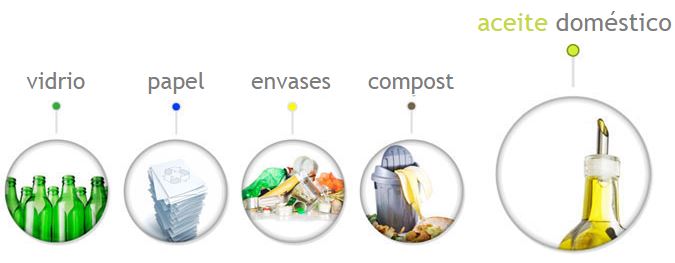recycling of cooking oil
Society is becoming increasingly aware of the fact that the recycling of used cooking oil is a real necessity. The waste generated from used oils is currently the main cause of pollution in urban water, which is a direct consequence of its uncontrolled disposal. The general dynamic shows that once we have finished with it, used cooking oil is poured down the drain into the drainage network of our municipalities, causing blockages and unpleasant smells in the drains in our homes, towns and villages.
The effect of this action produces:

- A major negative impact on the environment.
- Greater difficulty in the treatment of waste water.
- Restriction in the reuse of waste water.
- High maintenance costs for drainage systems.
- High costs at treatment plants.
The solution to this serious problem:
- Recycling of cooking oil as a formula for minimising the environmental impact.
- Implementation of a cooking oil recycling system in support of the process of recycling, collection and management of the waste generated.
why recycle used cooking oil?
Cooking oil is a highly polluting waste that obstructs human development, and thus social wellbeing, preventing the improvement of the quality of life.
The environmental benefits of cooking oil recycling are:
- The elimination of a waste that greatly pollutes water.
- The reuse of treated water.
- Lower costs in the treatment of waste water.
- Reduction in the deterioration and obstruction of drainage systems.
- Reduction in the probability of the spreading of microorganisms that are harmful to health.
- Reduction in the dependence on energy from overseas.

